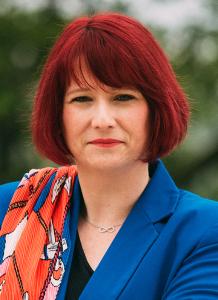PolitiKAS Debate: New Normal - Foundation Office Serbia / Montenegro
Online-Seminar
Details
The Konrad Adenauer Foundation, the Belgrade Open School i Eduardo Frei Foundation from the Netherlands have prepared another series of debates within the program PolitiKAS Debates: New Normal.
What are the most important events and people who have marked the three decades of the multiparty system in Serbia? What has changed in the last 30 years and have we learned anything? Those were some of the questions that were discussed at the debate “30 Years of the Multiparty System in Serbia”, on 23rd February 2021.
Speakers at the debate were Professor Dr. Milan Jovanović, full professor at the Faculty of Political Sciences and Nataša Vučković, Executive Director of the Foundation Centre for Democracy (FCD), who shared their knowledge and experiences with the participants. The debate was moderated by Bojan Klačar, Executive Director of CeSID.
Party System – Where it started and what has changed so far
Political scientists point out that the main reasons why political parties are founded are social gaps between groups, economic, social, religious, political gaps.
Serbia started introducing the multiparty system in 1990 when five political parties were founded and the multiparty system started to be developed. In the previous four and half decades the multiparty system was blocked.
„There are 115 active political parties in Serbia today, 72 of which are reregistered political parties and 51 of which are newly established. The introduction of the system with one electoral unit influenced the reduction of the number of political parties since 2000. From that moment on the number of parties participating in the parliamentary elections for the first time started to drop. In addition to that the changes of the law in 2009 made the conditions for the registration of political parties more complex (instead of the 100 signatures which were previously necessary in order for a political party to be founded, the law was changed so that 10.000 signatures are necessary for the foundation of a party) which reduced the number of political parties“, Professor Jovanović said.
From Monism to Pluralism and Back
Answering the question how far we are from the goals with which the system went from monism to pluralism and what is the position of Serbia today when it comes to the multiparty system, Nataša Vučković said that in these 30 years we have managed to almost reach the beginning situation, although the circumstances are much different than when we started this process in 1989. When political parties started to be founded in Serbia, another process was notable in Europe – the process of deideologization. It started from the economy and the change of social structures so that traditional parties started losing their firm ideological structure. In Serbia this process was followed by a lot of enthusiasm, the people were eager to contribute to the development of the general wellbeing and to be politically organized. Young people were interested to be politically engaged, which is very important. That is not the case today and that is a huge difference.”
On the other side, “there were no deep-rooted values in Serbia so the liberal phase which includes a certain culture of human rights, division of powers, a sense of free public, the rule of law in general, which is necessary in order to build up a responsible multiparty system, all of that was missing and that influenced the later processes”, Nataša Vučković said.
Changed Role of Political Parties – from Expectations to Trust
The reason why the political parties have not met the expectations of the citizens in the last three decades and why there is no trust between the citizens and the political parties we can find in a small number of institutionalized, well organized political parties which managed to survive not being in power. In order to be able to achieve that, a political party has to be well organized and to have an ideological profile. Professor Jovanović said that “all our parties want to be catch all parties. I think that the votes would prefer political parties with a clear profile and ideological basis. It is also clear that there is no successful political party without a successful leader, but a successful leader is not completely successful if his party is destroyed by him not being a leader anymore”.
Political Parties as Schools of Democracy
Talking about what a political party needs in order to be successful Nataša Vučković said that it needs to have “a clear political project and that it is necessary to define what kind of society we want to have which then leads to the narrative which is developed, well-founded, consistent; another important element are the people who are able to present the political project, who are trusted and who can get the citizens to follow them”. Once founded, the political parties need to nurture their members, to work on promoting activism and to educate their members about political participation while at the same time working on a more consistent political program and structure.
Political parties are the inevitable element of functioning democracies. Democracies give a voice to the citizens whereas the boycott of elections takes that voice away. So if they want to be in politics, political parties have to give the voters the opportunity to vote for them, the Director of the Konrad Adenauer Foundation in Serbia and Montenegro Norbert Beckmann Dierkes said.
At the end of the debate the speakers agreed that deciding to boycott the elections and calling out for abstinence and non-participation in the political life and in the election shows that there is a lack of understanding how the political processes work and what the role of the political parties is.
Within the PolitiKAS debate the monograph “How, Who and Why we Elected – 30 years of the Multiparty System in Serbia” which was edited by Professor Dr. Milan Jovanović and Dr. Dušan Vučićević. It was published by the public enterprise “Službeni glasnik”, the Institute for Political Studies and the Konrad Adenauer Foundation. As Professor Jovanović said, the monograph is the result of a two years’ work of 45 researchers from Serbia. It is divided in a few parts, which are dealing with the normative regulations of elections, the motives for voters to participate in the elections, the communication with voters about and during the elections. There is also a historic overview of all election results and political consequences of the electoral system to the other institutions as well as to the political representation. The last part of the monograph is dedicated to the significance of protecting the voting rights.
Eight debates will be organized in total within the program PolitiKAS Debates: New Normal. They aim at including the whole society into a debate which gathers participants with different opinions.




